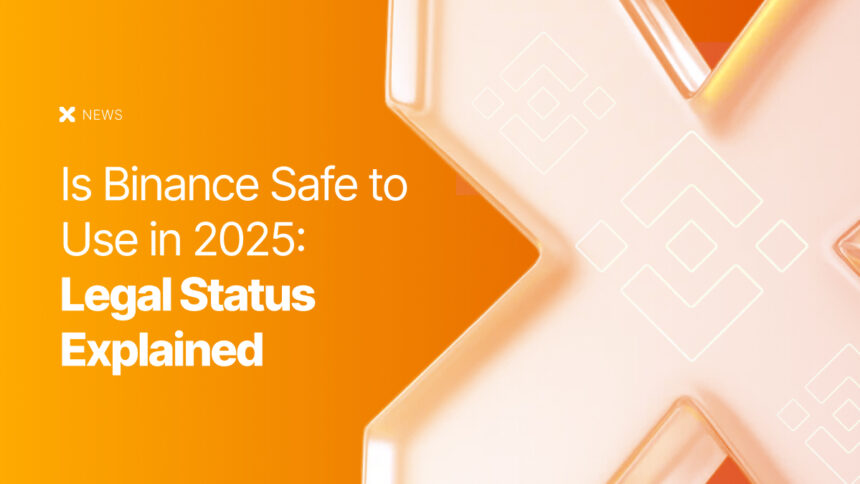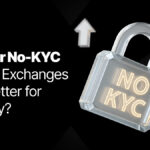With millions of investors, cryptocurrency trading and investment continues. Meanwhile, Binance remains the largest crypto exchange globally, serving over 250 million users across more than 100 countries. But as regulations tighten worldwide and security concerns remain, many ask: is this platform safe and legal to use in 2025?
Binance’s Legal Standing in 2025
Binance faces significant regulatory restrictions in several countries due to compliance concerns and government sanctions. It is banned or restricted in the United States, United Kingdom, Netherlands, Nigeria, Canada, Belgium and others:
In the United States, Binance itself is unavailable due to regulatory crackdowns on anti-money laundering and unregistered operations. Users rely on Binance.US, a separate, compliant platform launched in 2019. It has limited availability in some states and reduced feature sets compared to the global Binance platform. The United Kingdom’s FCA revoked Binance’s permissions entirely in 2023, barring it from offering any regulated crypto services. Countries like Nigeria and the Netherlands have imposed bans or forced Binance’s exit following regulatory fines and enforcement actions. Additionally, Binance is blocked or unavailable in sanctioned regions such as Cuba, Iran, Syria, North Korea and others.
Despite these challenges, Binance operates legally in many countries and holds 21 licenses worldwide, including from respected authorities like France’s AMF, Italy’s OAM, Dubai’s VARA and Bahrain’s Central Bank. These licenses allow Binance to offer exchange and financial services compliant with local laws in many jurisdictions. The company actively adapts its operations to meet evolving regulatory frameworks, making it accessible in most parts of the world.
Is Binance Safe to Use?
From a security standpoint, Binance implements a comprehensive set of protections designed to safeguard user assets and data:
- Two-factor authentication (2FA): Users must enable 2FA for critical actions such as withdrawals and password changes, using Google Authenticator or SMS verification, adding a vital layer of security.
- Cold wallet storage: The majority of user funds are held in offline cold wallets, disconnected from the internet, drastically reducing the risk of large-scale theft during hacking attempts.
- Wallet address whitelisting: This feature restricts withdrawals only to trusted wallet addresses, preventing unauthorized transfers even if an account is compromised.
- Secure Asset Fund for Users (SAFU): Binance allocates 10% of all trading fees to this emergency fund. Currently valued at $1 billion, it is for covering losses in the event of security breaches or hacks.
- Real-time monitoring and data encryption: Binance’s AI-driven systems continuously watch for suspicious activity, with automatic freezes on unusual withdrawals. Also, strong encryption safeguards sensitive user information.
- Additional features: IP access restrictions prevent logins from unapproved locations and RSA encryption protects API trading commands from interception or tampering.
What Should Users Consider?
When deciding whether to use Binance, it’s essential to understand both the regulatory environment and your own role in maintaining account security:
- Regulatory restrictions may affect your access: Depending on your country or state, Binance services may be limited or unavailable. For instance, Binance.US restricts certain services in states like New York, Texas and Washington. Always verify local regulations and Binance’s official guidelines before trading.
- Centralized custody risks: Binance holds your cryptocurrency on your behalf, which means if the exchange faces insolvency, legal issues or government shutdowns, your access to funds could be at risk. Many users mitigate this by withdrawing significant holdings to personal cold wallets they control.
- Personal security practices are crucial: Beyond Binance’s built-in protections, users must enable all recommended security features like 2FA, wallet whitelisting and IP restrictions. Use strong, unique passwords and regularly monitor account activity for any suspicious behavior.
- Stay informed: Cryptocurrency regulations are evolving rapidly worldwide. Keep up with changes in your country’s laws and Binance’s operational status.
- Customer support limitations: Some users report slow customer support responses from Binance, which could be critical if you encounter urgent access issues.
You can check out more cryptocurrency news on our blog.









